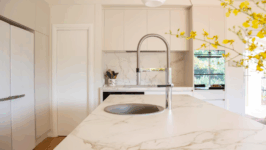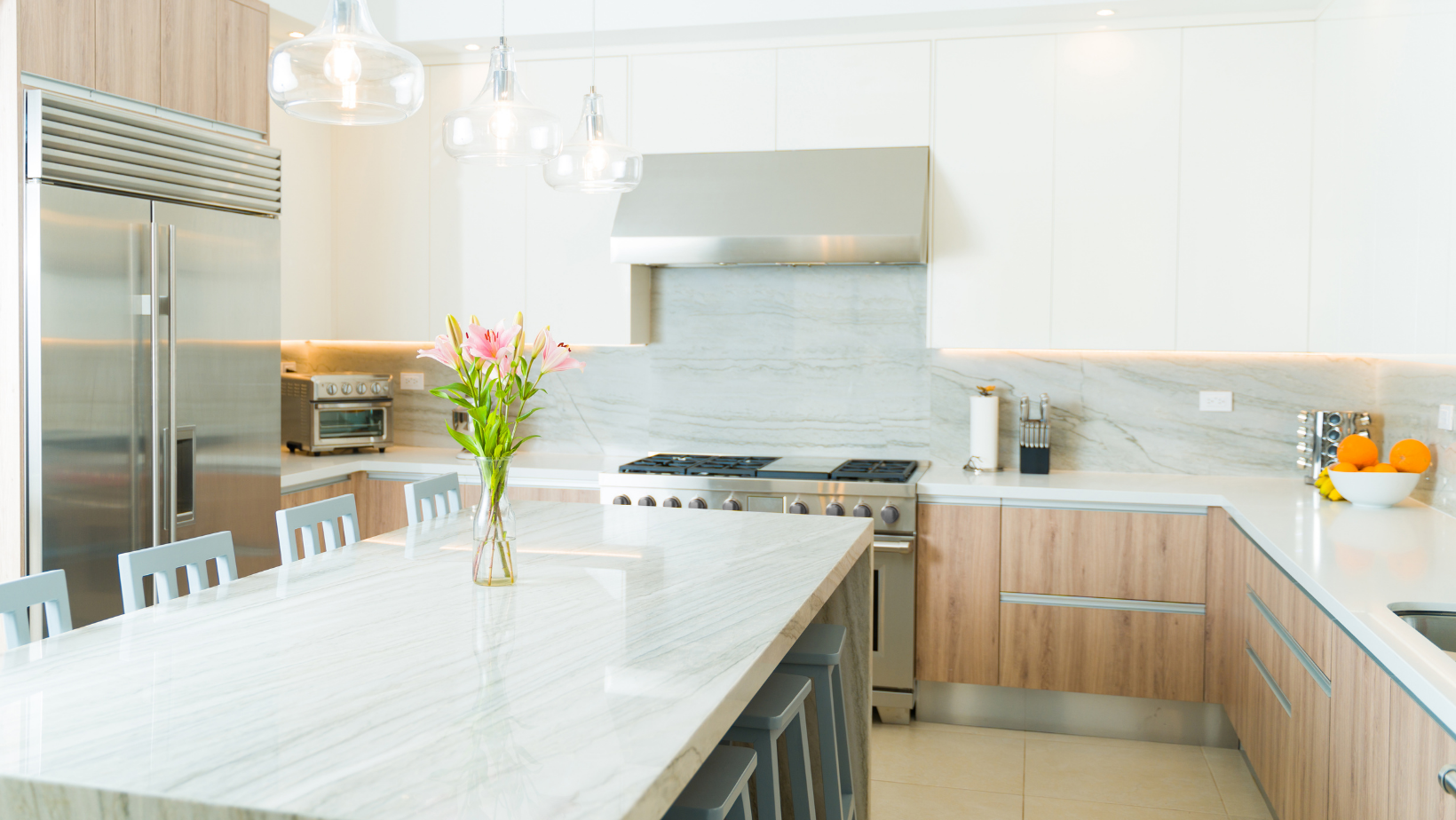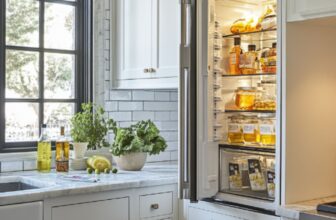
How to Choose the Perfect Kitchen Countertop: Expert Tips for Every Home
You’ve finally decided on a kitchen remodel. While Pinterest and Instagram are where dreams are made, reality has a harsh way of raining on your parade.
Budget, area size, and limited material choices could be what’s standing between you and your dream kitchen.
Oh, and countertops. Never underestimate the power of a flawless countertop. Many homeowners treat them as an afterthought. The truth is that these design elements are central to function and style.
From classic granite to sleek quartz and budget-friendly laminate, there’s no shortage of options. How do you choose the right one for your home?
With expert advice, key considerations, and the latest trends, you can find the ideal countertop to match your style and budget.
Understand Your Needs First
Before falling in love with a slab of marble or the modern look of concrete, assess how you use your kitchen.
Do you cook with the kids around? Do you need a surface that handles heat well? Are you looking for something low-maintenance? These questions will guide you toward the best material.
Popular Countertop Materials
Below, we’ll explore some of the most common materials, each with its pros and cons.

Quartz: Durable and Low Maintenance
Quartz is a firm favorite for a reason. Made from crushed stone and resin, quartz countertops are non-porous, meaning they resist stains, bacteria, and water damage.
- Best for: Busy households, modern kitchens
- Pros: No sealing required, wide range of colors, scratch- and stain-resistant
- Cons: Not as heat-resistant as natural stone
Quartz ranks as the best overall countertop material for its unmatched durability and easy upkeep.
Granite: Natural Beauty and Heat Resistance
Granite is a timeless choice that brings natural beauty to any kitchen. Each slab is unique, offering one-of-a-kind veining and patterns.
- Best for: Traditional kitchens, heat-heavy cooking
- Pros: Heat- and scratch-resistant, adds home value
- Cons: Requires periodic sealing, can chip if stressed
Expertly recommended by Artistic Stone, a leading kitchen countertop supplier, granite is naturally heat-resistant. You can place hot pots and pans directly on the surface.
Marble: Elegant but High-Maintenance
Marble is undeniably stunning, giving that upscale, classic vibe. But beauty comes with responsibility.
- Best for: Light-use kitchens, bakers (ideal for pastry prep)
- Pros: Cool surface, timeless look
- Cons: Prone to stains, etching, and scratches
This Old House notes that marble is a luxurious choice best suited for those who don’t mind putting in extra effort to preserve its elegance.
Butcher Block: Warm and Budget-Friendly
Wood countertops are cozy, charming, and great for rustic or farmhouse-style kitchens.
- Best for: Warm design aesthetics, prep-friendly spaces
- Pros: Affordable, can be sanded and refinished
- Cons: Requires regular sealing, can stain easily
House Beautiful highlights the butcher block for its natural warmth and budget flexibility.
Concrete: Modern Industrial Edge
Concrete counters are gaining popularity in contemporary homes for those who love an edgy, custom look.
- Best for: Industrial or minimalist designs
- Pros: Customizable, heat-resistant
- Cons: Prone to cracking, needs sealing
While trendy, concrete countertops may require more upkeep than some homeowners expect.
Don’t Forget About Color and Lighting
Countertop color can dramatically affect your kitchen’s ambiance and how big it feels.
Homes & Gardens advises that lighter countertops, such as white, beige, or pale gray, can visually open up a small space. On the other hand, darker tones work best in larger, well-lit areas for contrast and depth.
If your kitchen lacks natural light, steer clear of dark granite or black quartz, which can make the space feel even smaller and more enclosed.
Think Long-Term
Some countertops look amazing in showrooms but become a hassle in real life.
You don’t want to reseal your surface every year or worry about red wine stains. Rather, skip porous materials like marble and unsealed granite.
Quartz is the easiest to care for. It doesn’t need sealing, resists stains well, and handles some heat, though not as effectively as natural stone.
Granite is a durable choice that performs well against both stains and heat when properly sealed.
Butcher block also needs regular sealing and can stain or scorch easily if not maintained.
Concrete is heat-resistant and offers a modern look. Like marble and butcher block, it requires sealing and is vulnerable to staining without proper care.
Budget Considerations: What You’ll Pay
Cost plays a big role in your decision. Here’s a rough price guide sourced from Real Simple:
- Butcher Block: $30–$100 per square foot
- Granite: $40–$200 per square foot
- Quartz: $50–$150 per square foot
- Marble: $60–$200+ per square foot
- Concrete: $70–$140 per square foot
Keep in mind that installation, edge profiles, and backsplash design can impact the final cost.
Bonus Tips for Choosing the Right Countertop
Remember, if cooking every day, choose durability first. If you host occasionally and want a “wow” factor, you can prioritize looks.
Want a marble island for baking and quartz counters for durability? Go for it! Mixing materials is trendy and practical.
Photos don’t do concrete or stone justice. Visit a showroom to see natural slabs in person and feel the texture, color, and finish options.




